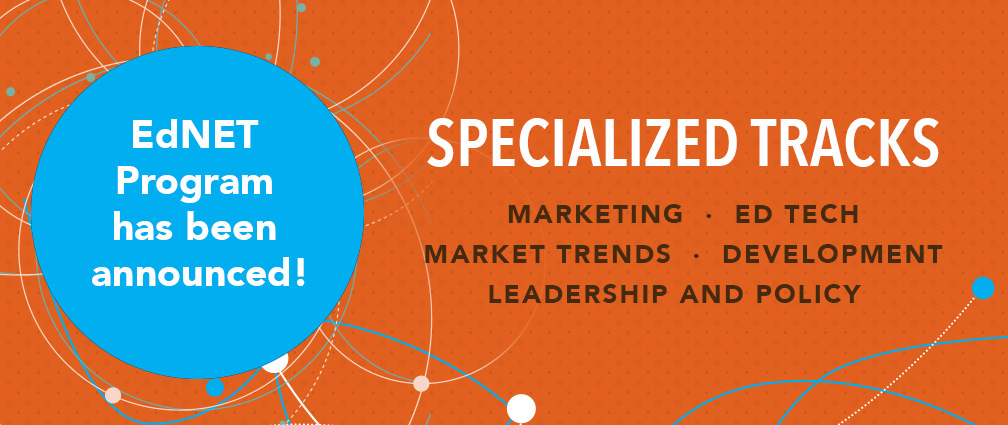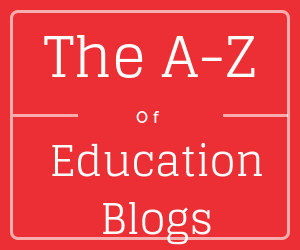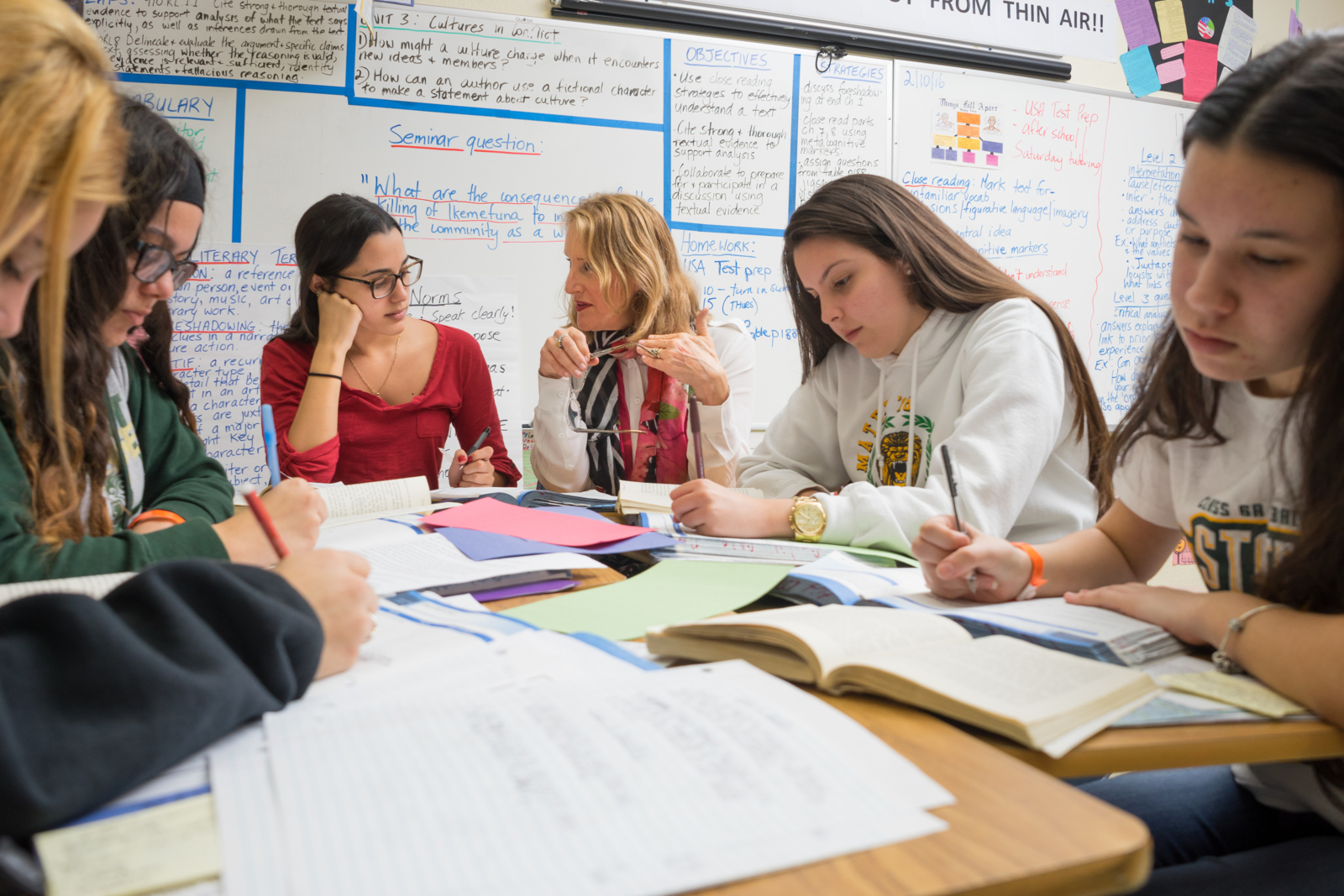In this multi-part series, we are profiling the best of the best education blogs, in alphabetical order. In the previous article, I introduced letters TE and in this one, I will discuss letters TH-Y.
Click here to access all of the articles in this series.
The Innovative Educator
Lisa Nielsen’s daily blog posts focus on ways to make education more relevant for students by embracing technology and channeling their passions. Recent topics include how to teach students to evaluate the accuracy of the news, and how to tell if your students are digital learners.
Score: Activity 20, Originality 19.5, Helpfulness 22.5, Authority 23
Total Score: 85
Twitter: @InnovativeEdu
The Nerdy Teacher
Nicholas Provenzano shares his ideas about being a connected educator. Recent articles outline how to create a meaningful Makerspace program.
Score: Activity 25, Originality 21, Helpfulness 21.5, Authority 23
Total Score: 91.9
Twitter: @thenerdyteacher
Email: OneNerdyTeacher@gmail.com
The Educator
This is another UK site, but it’s worth mentioning as it covers some fresh topics, such as finding out what refugee camp teachers go through, teachers’ work life balance, and what you can learn from a classroom in Singapore.
Score: Activity 17, Originality 17, Helpfulness 17, Authority 17
Total Score: 68
Twitter: @TheEducator_UK
The College Puzzle
Geared more towards students, this blog focuses on how to adapt and thrive in college. They post regularly, making it a site to bookmark for regular perusal.
Score: Active 25, Original 19, Help 18, Authority 16
Total: 78
Twitter: @Michael_Kirst
The Cornerstone for Teachers
This blog by Angela Watson is interesting because it focuses on teachers and managing yourself, as well as your classroom. There are also plenty of resources, courses, etc. available from Angela on the page.
Score: Activity 20, Originality 21, Helpfulness 21, Authority 20
Total Score: 82
Twitter: @Angela_Watson
The Curriculum Corner
In this blog, founded by two teachers, you will find lesson plans, activities to do in the classroom, etc. targeted toward busy teachers who want to access information fast. Unlike so many other blogs these days the focus here is old fashioned games and activities. The activities are aimed to meet national state standards.
Score: Activity 17.6, Originality 17, Helpfulness 18, Authority 18
Total Score: 70.6
Email: jillandcathy@thecurriculumcorner.com
Twitter: @curriculumcornr
The Innovative Educator
Lisa Nielsen got angry because she found education boring so she decided to do something about it. On her blog she shares innovative tips for educators.
Score: Activity 23, Originality 22, Helpfulness 20, Authority 23
Total Score: 88
Twitter: @InnovativeEdu
The Learning Spy
David Didau likes exploring psychology and learning which he talks about on his blog, setting out with the idea that possibly everything you ever knew about education might be wrong. He is based in the UK, but his thoughts are as relevant for teachers in the US. If you want to find out what techniques you’re using in the classroom that have actually been examined to work and which are just presumed to work, then this blog is for you.
Score: Activity 22, Originality 23, Helpfulness 21, Authority 23
Total Score: 89
Email: ddidau@gmail.com
Twitter: @DavidDidau
The Jose Vilson
A math teacher turned teaching activist promoting social justice in education, Jose Vilson shares his thoughts on the latest happenings in education, offers support to minorities in teaching and talks about teaching students of low income households. The blog has been listed on several “top blog” lists.
Score: Activity 19, Originality 24, Helpfulness 18, Authority 23
Total Score: 84
Twitter: @thejlv
The Learning Network
This is the New York Times Learning Network, which is a great network to tap into if you’re looking for lesson plans centered around news stories. There are also news quizzes, a film and picture club and various contests that your students can get involved in.
Score: Activity 24, Originality 20, Helpfulness 17, Authority 19
Total Score: 80
Twitter: @nytimes
The Organized Classroom
This blog by Charity Preston mixes hands on classroom DIY with technology tips, classroom management tips, etc. There are plenty of video workshops too.
Score: Activity 17, Originality 17, Helpfulness 18, Authority 18.3
Total Score: 70.3
Twitter: @theOCblog
The PE Geek
It sounds somewhat contradictory to introduce edtech to PE, but it’s not. And here you’ll learn why. From time to time there are also other topics related to edtech and teaching covered, so even if you don’t teach PE, you might want to stop by.
Score: Activity 22, Originality 23, Helpfulness 19.5, Authority 20
Total Score: 84.5
Twitter: @mrrobbo
The Power of Educational Innovation
School administrator Liz Davis chronicles her adventures in leading technology innovation in her school and her region. Her recent posts tell a story of inspiring students to lead through an Edcamp program.
Score: Activity 18, Originality 22, Helpfulness 21, Authority 21.5
Total Score: 82
The Teaching Palette
They may not post often, but their posts related to teaching art are incredibly helpful if you are indeed teaching art!
Score: Activity 19, Originality 18, Helpfulness 18, Authority 20
Total Score: 75
Twitter: @TchingPalette
The Theory Blog
This blog looks at some of the most entrenched ideas in higher education and questions them. It is thought provoking, even if you do not always agree, making it well worth a monthly check for updates.
Score: Active 15, Original 25, Help 18.5, Authority 19
Total: 77.5
Twitter: @BonStewart
Think Inclusive
This blog is for anyone teaching in an inclusive classroom. Here you will find tips from other educators that you can implement.
Score: Activity 17, Originality 20.5, Helpfulness 20, Authority 22
Total Score: 79.5
Twitter: @think_inclusive
Times Higher Education
A higher education blog staple, Times Higher Education takes in the news and events about and on campus on a daily basis. It is a great way to start the day catching up on events that you may have missed or to prepare for tomorrow.
Score: Active 25, Original 18.5, Helpfulness 23, Authority 20.9
Total: 86.9
Twitter: @TimesHigherEd
Top Hat Blog
Top Hat strives to keep students and professors working together. They cover a good bit of news and assessments about higher education edtech too.
Score: Active 23, Original 21, Helpfulness 20, Authority 22
Total: 86
Twitter: @TopHat
Top Performers
If you are interested in the policies and practices of countries that have the best educational systems, this is a blog that will give you insight. It will make you question what’s good and what’s bad in the American system and possibly leave you with ideas for how to make your personal teaching better.
Score: Activity 21, Originality 21, Helpfulness 15, Authority 23
Total Score: 80
Email: marc.s.tucker@gmail.com
Twitter: @educationweek
Totally Rewired
The tagline for the site says it all – “…education, technology and random stuff.” The site is a great source of information about higher education, and a bit of random news and trending topics to keep you entertained as well as informed.
Score: Active 12, Original 22, Help 18, Authority 16
Total: 68
Twitter: @Chri5Rowell
Udacity
The primary focus is on data and technology, but there is also a heavy emphasis in how they change higher education. It is an interesting blog to track for those who are interested in technology or who want to see where edtech could take higher education in a few years.
Score: Active 19, Original 21, Help 18.3, Authority 20
Total: 78.3
Twitter: @Udacity
UnCollege
This is a blog aimed at a very specific niche in higher education – student taking a year off of going to school. Since the point is to take a break, the blog gives you ideas and advice about how to make that year both productive and enjoyable so that you are ready to go back and finish your degree with enthusiasm.
Score: Active 20, Original 25, Help 15, Authority 18.6
Total: 78.6
Twitter: @UnCollege
University Business
If you are in administration, this is a must follow blog to keep you informed and help you plan for the future. With multiple blogs posted daily, there is always something new for your to learn or consider.
Score: Active 25, Original 17, Help 20, Authority 18.5
Total: 80.5
Twitter: @UniversityBusiness
User Generated Education
If you are looking for extraordinary activities for elementary school kids, then this blog by Jackie Gerstein Ed.D is for you! Here you will find activities that far surpass the normal range and help both teachers and kids think outside the box.
Score: Activity 19, Originality 24, Helpfulness 22, Authority 20
Total Score: 85
Twitter: @jackiegerstein
Web 2.0 Classroom
Renowned for his insightful tweets and retweets, Steve Anderson blogs about powerful ways to use technology in the classroom. Most recently, he posted about the power of TED talks and how to teach kids to evaluate news sources.
Score: Activity 25, Originality 24, Helpfulness 24.5, Authority 25
Total Score: 97.5
Email: steven.anderson@web20classroom.org
Twitter: @web20classroom
Will Richardson
If you want a thought provoking blog that takes on random subjects, this one does not disappoint. While other blogs tend to repeat each other, this one is utterly unique and enjoyable when you want to cogitate about something different.
Score: Active 22, Original 25, Help 17, Authority 15.5
Total: 79.5
Twitter: @WillRich45
Yes, Tech!
A technology instructional coach, Pam Shoemaker, blogs about the ways in which technology is changing the face of education. She will inspire you to take on challenges such as learning to code or becoming a Google trainer.
Score: Activity 21, Originality 19.5, Helpfulness 17, Authority 14.5
Total Score: 72
Email: pamelashoemaker@wlcsd.org
Twitter: @shoemap
Conclusion
As you can see, there is no shortage of great education blogs to choose from! Subscribe to those that meet your needs best, and watch your knowledge of education expand in no time.




